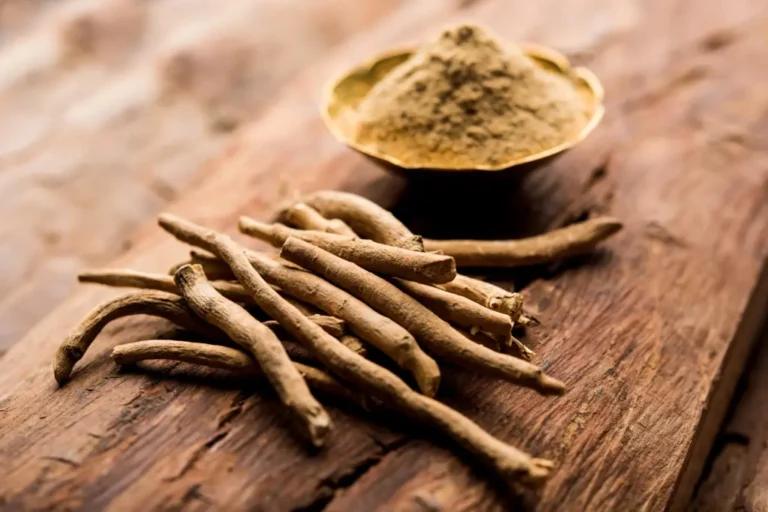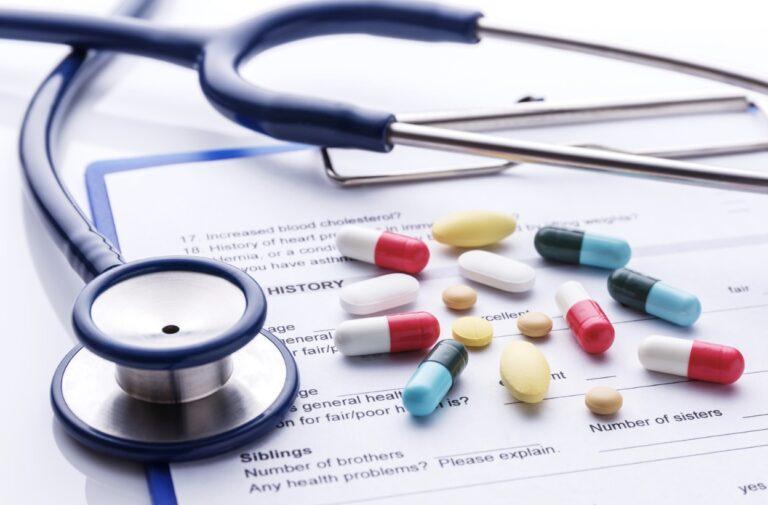Checking drug interactions is something we do when taking prescription drugs, but have you ever considered potential interactions with herbal supplements? Herbal remedies sometimes called alternative medicines have been used for centuries and we have the impression that herbal products are natural and safe. However, when they are taken alongside prescription meds they can change how drugs are broken down in the body, intensify their side effects or even block the intended therapeutic effect of a drug. Dangers exist with herb-drug interactions which can result in serious health problems.
Let’s take a look at eight herbal medications that are known to interact with certain prescription medications.
What are herbal supplements?
Herbal supplements contain one or more varieties of herbs and are classed as a type of dietary supplement. They are thought to be useful in treating disease and keeping healthy. Most are available in health food stores and even some supermarkets. They are:
- Also known as botanicals
- Made from plants, algae, fungi, or a mix of these
- Available in many forms such as teas, extracts, tablets, capsules, and powders
John’s Wort
St. John’s Wort is one of the most well-known herbal medicines and its use dates back as far as the ancient Greeks. It is a plant with yellow flowers that bloom around June.
St John’s Wort is thought to be useful in treating depression, mood disorders, menopausal symptoms and other conditions. It is also available topically to treat skin conditions, bruising and muscle pain. Research indicates St. John’s Wort may work in a similar way to conventional antidepressants by increasing levels of serotonin and noradrenaline in the brain.
St. John’s Wort has many interactions with many commonly used prescription drugs such as:
- Antidepressants
- Contraceptive pill
- Immunosuppressant drugs e.g. cyclosporine, which prevents the body from rejecting transplanted organs
- Some heart medications e.g. digoxin
- Some HIV drugs
- Cancer medications
- Anticoagulants (blood thinners) e.g. warfarin
- Heart disease and cholesterol medications such as statins
- Calcium channel blockers (used for high blood pressure)
Ginkgo biloba (gingko)
Ginkgo biloba is a species of tree native to China with fan-shaped leaves, it has a long tradition in Chinese medicine. It has been promoted as a dietary supplement for memory boosting, anxiety, eye problems, high blood pressure, allergies and other conditions. There is no significant evidence to suggest ginkgo can help with any of these conditions. It has interactions with:
- Warfarin and other blood thinners
- Nonsteroidal anti-inflammatory drugs (NSAIDs)
- Anti-seizure medications such as carbamazepine, phenytoin or phenobarbital
- Diabetes medication such as insulin
A study, part-funded by the National Center for Complementary and Integrative Health (NCCIH) involving over 3000 patients looked at the long-term use of ginkgo to improve memory. No change was found in dementia patients taking ginkgo.
Evening primrose oil
Evening primrose is a yellow flowering plant native to North and South America. It contains an omega-6 fatty acid known as gamma-linoleic acid. It is often used to treat eczema, premenstrual syndrome and diabetic neuropathy but there is no research to back up its use as a treatment for these conditions.
Evening primrose oil may delay blood clotting and increase the chance of bruising or bleeding therefore shouldn’t be taken with blood-thinning drugs. It may also increase the risk of seizures when taken with drugs to control epilepsy or schizophrenia. Evening primrose may have interactions with:
- Anticoagulants
- Drugs that are cytochrome P450 3A4 substrates e.g. lovastatin
- HIV drugs such as lopinavir and ritonavir
- Anti-seizure medications
- Phenothiazines used to treat schizophrenia and psychotic disorder
Ginseng
Ginseng is a herb native to the Far East. It is the root of the plant that holds the health-related benefits used in traditional Chinese medicine for thousands of years. It is thought to improve overall wellness, slow down the ageing process and improve concentration and memory to name a few conditions.
Ginseng is not suitable to take with:
- Calcium channel blockers
- High blood pressure medications
- Statins
- Antidepressants
- Blood thinner medication e.g. heparin, aspirin, warfarin
- Anti-inflammatory drugs such as ibuprofen, naproxen, and ketoprofen
- MAO (monoamine oxidase) inhibitors such as phenelzine or tranylcypromine
Echinacea
Echinacea is a herb used traditionally by Native Americans. It stimulates the immune system and is thought to help with the common cold and other minor infections. Current evidence shows that the risk of interactions between echinacea supplements and most medications is low. Caution may be taken while on prednisone as both drugs target the immune system.
Liquorice
Liquorice is used as a flavouring in sweets, drinks and tobacco products. Its origins go back to Indian, Egyptian and Chinese cultures. The main conditions liquorice is used to treat are digestive issues, menopausal symptoms, cough, and bacterial and viral infections, but no clinical evidence is available.
Liquorice should not be taken with:
- Digoxin for congestive heart failure and abnormal heart rhythms
- Blood pressure medications
- Diuretic (urine-producing) drugs, including hydrochlorothiazide and spironolactone
Cranberry
Something simple as cranberry can have drug interactions. It needs to be used with caution with blood thinners (anticoagulants) like warfarin.
Green tea
Green tea is a very popular choice for stomach disorders, to lower cholesterol, as an anti-cancer antioxidant, as a stimulant, and to lessen belly fat, among other uses. Green tea can interact with:
- ACE inhibitors such as lisinopril
- Beta-blockers
- Blood thinners
Some tips to avoid problems
There are many things you can do to stay safe and avoid dangerous interactions between herbal medication and prescription medication:
- Thoroughly read drug labels to familiarise yourself with the drugs you are taking
- Ask questions if you are unsure. Every question is worth asking. Your pharmacist, doctor or clinician can advise and provide guidance
- Check with your doctor or pharmacist before taking an over-the-counter drug if you are taking any prescription medications
- Use one pharmacy exclusively for all your drug needs so there will be a comprehensive record of all your medications in one place
- Keep all of your healthcare providers up to date with everything you take
- Record on your phone or a notebook your prescription drugs, OTC drugs and supplement use. Keep this list handy but especially when you go to any medical appointments
Sources
Medical Disclaimer
NowPatient has taken all reasonable steps to ensure that all material is factually accurate, complete, and current. However, the knowledge and experience of a qualified healthcare professional should always be sought after instead of using the information on this page. Before taking any drug, you should always speak to your doctor or another qualified healthcare provider.
The information provided here about medications is subject to change and is not meant to include all uses, precautions, warnings, directions, drug interactions, allergic reactions, or negative effects. The absence of warnings or other information for a particular medication does not imply that the medication or medication combination is appropriate for all patients or for all possible purposes.







